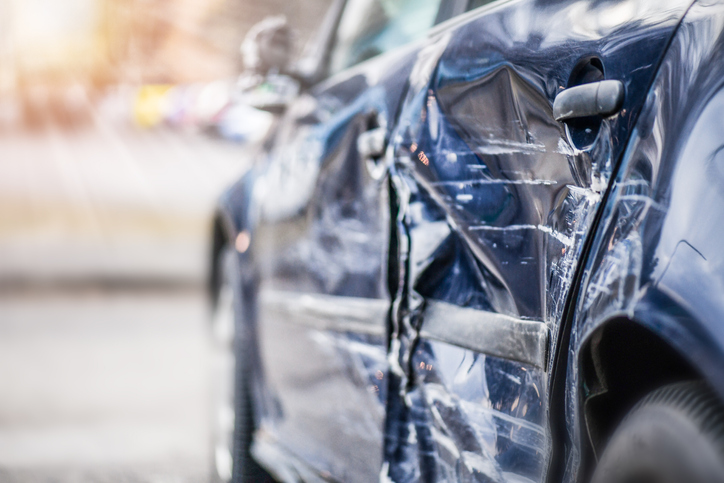
Verdicts & Settlements: $250,000 Policy Limits Tendered in T-Bone Crash
October 18, 2021
Verdicts & Settlements: Broward Jury Returns $419,000 Verdict in Stop Sign Collision Case
November 11, 2021
Every commercial car crash is different, but in some cases, yes – the parent company can be held liable for the actions of their contractors or third-party companies that fulfill on services. This is true for a diverse array of potential commercial trucking accidents or business injuries, from rideshare and food delivery to package delivery.
If a person is hurt in a construction accident, the property owner, the builder and the contractor responsible for the accident might all be liable. If a commercial truck hits a commuter vehicle, the trucking company, the driver, the distributor and maybe even the truck’s manufacturer might be liable.
What matters most in all those cases is whose negligence caused the accident and to what degree they were at fault. In the construction injury example, if the property owner did everything right and the injuries were caused solely by the construction company, liability may fall almost entirely on the negligent company.
If the company that loaded the commercial truck did everything by the book and the driver’s own inattentiveness caused a commercial truck accident, it might only be the driver and their employer who will be at fault for injuries.
What complicates things for Amazon is the way they employ contractors and whether it’s possible to prove their policies or operating procedures might be contributing to accidents.
In one recent case, a person disabled in an accident caused by an Amazon driver is claiming the company’s algorithm is at least partially to blame for the accident and his disability. The argument is that Amazon creates incentives that encourage drivers to be reckless. The company’s policies allegedly force their third-party distributors to cut corners. If his lawyers successfully argue that narrative, Amazon could be found significantly liable for the injuries their drivers cause.
One of the reasons companies like Amazon use third-party shipping companies or Uber tries to categorize their drivers as independent contractors is to minimize their liability exposure. The idea is if the drivers aren’t Amazon employees – and Amazon isn’t paying them directly – then Amazon shouldn’t be liable for their actions.
Although loopholes like that can provide some cover, the law does – on occasion – see through clever liability-dodging tricks. For one thing, it’s hard to claim a person isn’t working for you if your logo is on their van.
Signs to Look for to Determine if an Amazon Driver Caused Your Accident
The first step in establishing liability is determining whether the Amazon driver’s actions directly caused the accident and whether Amazon may bear legal responsibility under theories such as vicarious liability or negligent hiring.
To prove actions like aggressive or erratic driving, eyewitness testimony or dashcam footage is invaluable. Distracted driving is also a big issue mentioned in the Amazon lawsuit, as drivers are often required to pay attention to devices for navigation and delivery instructions. There’s also the issue of driver fatigue due to long hours driving. If a violation of traffic laws caused an accident, it should be formally documented in police reports.
If the accident involves an Amazon-owned vehicle, onboard tracking technology may provide key data such as route history, speed, and shift duration, which could serve as evidence in a claim. However, third-party drivers are expected to use the Amazon Flex App or another service officially affiliated with the company, which may be difficult to determine on your own. These are just a few of the reasons why it’s best to hire an experienced Amazon attorney in these cases.
Signs They May be At Fault
There are many circumstances in which Amazon drivers may be making traffic violations, but some of the most common include the following:
- Speeding in residential or commercial areas
- Failing to stop at intersections or yielding to provide the right-of-way
- Ignoring pedestrian crossings and school zones
- Blocking driveways, intersections, or other pathways while making deliveries
- Unsafely merging into moving traffic
- Swerving between lanes in high-density areas
- Evidence of unattainable delivery expectations
- Failure to conduct adequate background checks
Can You Sue Amazon Delivery Drivers and Amazon?
If you get into an accident caused by an Amazon driver, you’re probably wondering if you should sue, and what the likelihood is that you would win. The reality is that Amazon outsources their driving positions to many third-party companies, so in these cases, they will try to claim they’re not liable. If the driver’s negligence directly caused the accident, their personal auto insurance may be the primary source of compensation, but liability could extend to Amazon under specific conditions.
Amazon’s Liability
If Amazon or a third-party contractor failed to properly vet the driver’s background, including reviewing driving history and criminal records, they may be held liable for negligent hiring or supervision. Another way of seeing if a driver’s reckless behavior can be traced back to the company is by determining if Amazon’s delivery demands caused the erratic behavior or negligence. If drivers must rush to make deliveries to the point where it’s creating unsafe conditions, it could be a credible case for an Amazon lawyer.
Who Pays in an Amazon Wreck?
If the accident involves a third-party contracted driver, liability may depend on whether their personal auto insurance includes commercial coverage, as many standard policies exclude accidents occurring during paid delivery services. In many cases, they will not, but the driver is still the responsible party who owes damages if they are found liable.
If it is found that the wreck occurred under the qualifications of the Amazon Flex insurance policy or that the driver worked for a contracted delivery service partner, these entities may be partially liable and have to pay out damages on behalf of their employee’s actions.
If the driver is directly employed by Amazon Logistics, Amazon may bear liability under respondeat superior, a legal doctrine holding employers responsible for employees’ actions within the scope of employment.
Flex Insurance Coverage
Amazon Flex insurance is a limited commercial auto policy the company offers for drivers on the clock. Drivers are not covered through Flex unless they are actively delivering. Amazon Flex insurance provides up to $1 million in liability coverage when drivers are actively delivering, covering at-fault accidents and uninsured motorists in specific circumstances.
However, there are instances when Flex insurance may not be sufficient, such as if the accident is too severe and exceeds the coverage limit. Amazon’s Flex insurance serves as secondary coverage when the driver’s personal auto insurance applies, which can result in coverage denials depending on the circumstances.
The Proliferation of Third-Party Amazon Shippers
No one will be surprised that 2020 was a big year for Amazon, given the pandemic and people’s natural desire to avoid in-person shopping. Even knowing that it’s still astonishing that Amazon Logistics managed to deliver 5.86 billion packages in the United States in 2023. That’s up from the already mind-boggling 4.9 billion packages delivered in 2022.
That averages out to 16,054,794 Amazon packages per day in 2023. By 2024, Amazon was already using more than 4,400 third-party companies that employed 390,000 drivers in the United States. Amazon does not technically own these “Delivery Service Partner,” but they are the equivalent to contractors who work solely on Amazon’s behalf.
Amazon requires drivers who deliver their packages to use an app called Mentor to monitor things like driver speed and safety. Some reporting this year alleges those independent delivery service partners instruct their drivers to turn off the app to cover up dangerous driving. After all, the faster drivers go, the more packages they can deliver, which means more revenue for delivery service partners.
If the reports are accurate, Amazon may be able to defend itself by suggesting they, too, were misled by bad actors among their delivery service partners. They have an app specifically designed to discourage reckless driving, but those delivery service partners are sabotaging their efforts to generate more revenue off Amazon.
Whether Amazon requires delivery service partners to meet unrealistic quotas may also matter in a personal injury case. Do these third-party companies have to cut corners in order to meet demand and maintain their status as a partner? If that’s the case, they may be able to argue Amazon’s system was designed more to shift liability to drivers and delivery service partners rather than reduce accidents.
Are Delivery Service Partners More Than Just Contractors?
In the new case targeting Amazon’s algorithm, the lawyers are arguing delivery service partners aren’t exactly independent third-party service providers. Amazon essentially dictates how many packages drivers deliver and which drivers should be fired based on performance metrics.
Amazon tracks everything about their deliveries, even though those deliveries are technically being made by separate companies. However, the personal injury attorneys seem to be implying Amazon is able to constantly monitor the performance of drivers. If drivers are being ordered to turn off their tracking apps by their employers, that might not be an easy case to make.
Will Amazon Be Held Accountable for Car Crash Injuries Their Third-Party Driver’s Cause?
Only time will tell. Car crash injury attorneys for plaintiffs in recent Amazon crash cases seem to want the company’s secret algorithm to be brought into public view, but they have an uphill climb. If Amazon can successfully shift liability to the negligent actions of individual delivery service partners, it may be hard to hold the company liable. At the same time, shouldn’t they be aware of the actions of their contractors?
Personal injury lawyers are often forced to go up against large corporations with deep pockets and legal loopholes. If you’ve been injured in an accident, it’s often in your best interest to find auto accident attorneys who aren’t afraid to take on challenging cases and fight for the compensation you deserve.

